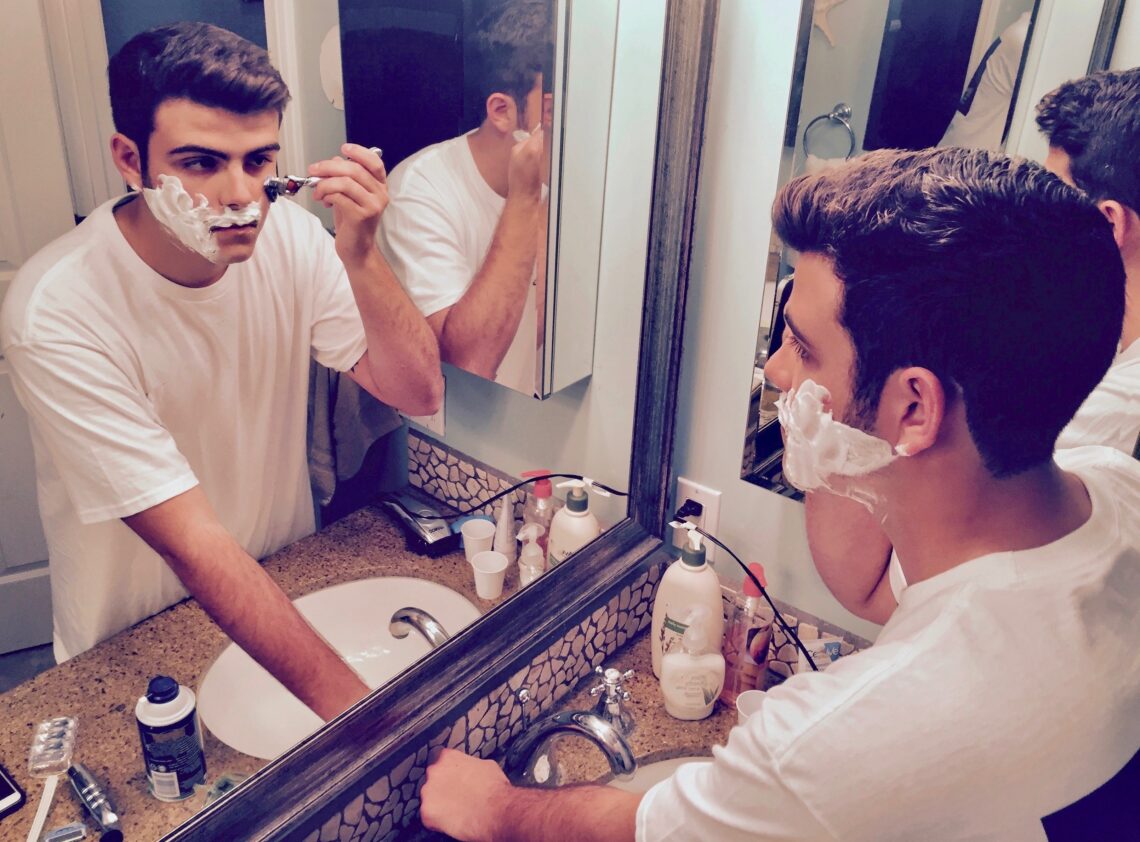
The Power of Personal Hygiene: Why It Matters More Than You Think
Personal hygiene is essential for maintaining good health and well-being. It is not just about looking and smelling good, but it also plays a crucial role in preventing the spread of infectious diseases. Yet, many people overlook the importance of personal hygiene in their day-to-day lives. Taking care of your body and surroundings is more important now than ever before and, in this post, we will discuss why. From the benefits of hand washing and oral hygiene to the importance of clean-living spaces and clothing, we will explore the power of personal hygiene and why it matters more than you may think. So, let’s get started on the importance of maintaining personal hygiene and the impact it can have on your life.
The Importance of Personal Hygiene
Personal hygiene is one of the most important aspects of our daily lives. It is the practice of maintaining cleanliness and grooming oneself to prevent the spread of diseases and infections. Personal hygiene includes habits such as washing hands, brushing teeth, bathing regularly, and wearing clean clothes. It is not only essential for our health but also for our overall well-being and self-confidence.
Good personal hygiene is crucial in preventing the spread of germs and infections. With the COVID-19 pandemic, this has become more important than ever. Washing our hands frequently with soap and water can prevent the spread of not only COVID-19 but also other illnesses such as the flu, common cold, and stomach infections.
Maintaining proper personal hygiene also helps in boosting our mental and emotional well-being. When we look good and feel clean, we feel more confident and positive about ourselves. This positivity can also reflect in our personal and professional lives, leading to better relationships and opportunities.
Moreover, good personal hygiene is also important in a professional setting. It shows that we respect ourselves and those around us and can leave a positive impression on our colleagues and clients. On the other hand, poor personal hygiene can lead to negative perceptions and can even affect our career prospects.
In conclusion, personal hygiene is not just a routine but a crucial aspect of our lives. It is essential for our health, well-being, and social and professional image. So, let’s make sure to practice good personal hygiene habits and make it a priority in our daily lives.
The Benefits of Good Personal Hygiene Practices
Good personal hygiene practices have numerous benefits beyond just smelling good. These practices can help prevent the spread of diseases, infections, and illnesses. When we maintain good personal hygiene, we reduce the number of harmful bacteria and viruses on our bodies, which can help prevent us from getting sick or spreading illness to others.
Additionally, good personal hygiene can have a positive impact on our mental health and overall wellbeing. When we feel clean and well-groomed, we tend to feel more confident and self-assured. This can translate into improved mental health and reduced stress levels. Good hygiene practices can also improve our social interactions, as people are generally more comfortable being around individuals who take care of themselves.
Moreover, good hygiene practices can help us maintain healthy skin and hair. By regularly washing and moisturizing our skin and hair, we can prevent issues like dryness, itching, and dandruff. Brushing and flossing our teeth regularly can prevent dental issues like cavities and gum disease, which can have serious health consequences if left untreated.
In summary, good personal hygiene practices are essential for our physical and mental wellbeing, as well as our social interactions. By incorporating these practices into our daily routines, we can feel and look our best, while also protecting ourselves and those around us from illness and disease.
How Personal Hygiene Affects Your Health
Personal hygiene is not just about looking and smelling good, it is also about maintaining good health. Good hygiene practices can prevent the spread of harmful bacteria and viruses that can cause illness. Regular hand washing is one of the simplest and most effective ways of preventing the spread of germs. It is recommended that hands should be washed for at least 20 seconds with soap and water, especially before eating, after using the toilet, and after blowing your nose, coughing, or sneezing.
In addition to hand washing, proper dental hygiene is also important for overall health. Brushing and flossing your teeth regularly can prevent bad breath, tooth decay, and gum disease. Poor dental hygiene has been linked to an increased risk of heart disease, stroke, and other health problems.
Personal hygiene also includes proper grooming, such as bathing or showering regularly, using deodorant, and wearing clean clothes. This not only helps prevent body odor but also helps prevent the spread of bacteria and fungi that can cause skin infections.
Overall, good personal hygiene is essential for maintaining good health. By adopting good hygiene habits, you can protect yourself and those around you from illness and disease.
The Social and Psychological Effects of Poor Personal Hygiene
The social and psychological effects of poor personal hygiene cannot be ignored. People who don’t pay attention to their hygiene and grooming habits can easily become the subject of ridicule or even bullying. It’s not uncommon for people to avoid interacting with someone who has poor hygiene, which can lead to social isolation and loneliness.
On top of that, poor personal hygiene can also have psychological effects on the person themselves. It can cause low self-esteem, self-doubt, and in some cases, depression. A person who doesn’t feel good about themselves due to their hygiene may also struggle with anxiety about social situations or going out in public.
On the other hand, good personal hygiene can have numerous social and psychological benefits. It can improve self-confidence, self-esteem, and overall mental health. When a person takes care of their personal hygiene, they are more likely to feel good about themselves, which can lead to more positive social interactions, better job prospects, and a happier life overall.
In conclusion, maintaining good personal hygiene is not just about physical health, it’s also about mental and emotional well-being. It’s important to prioritize hygiene and grooming habits in our daily routines to ensure we feel good about ourselves and can enjoy positive social interactions.
The Difference Between Good and Bad Hygiene Habits
Good hygiene habits are essential for maintaining good health and preventing the spread of germs, bacteria, and viruses. On the other hand, bad hygiene habits can lead to a range of problems, including skin infections, bad breath, and other serious health problems.
Good hygiene habits include regular washing of hands, taking regular baths or showers, brushing, and flossing teeth, using deodorant and antiperspirant, and keeping your nails clean and trimmed. These habits help to eliminate bacteria and germs that can cause illness and infections.
Bad hygiene habits, on the other hand, can include things like not washing hands after using the bathroom, not showering or bathing regularly, not brushing, or flossing teeth, and not using deodorant or antiperspirant. These habits can lead to the build-up of bacteria and germs, which can cause bad odors, skin infections, and other serious health problems.
It is important to note that good hygiene habits are not just important for your personal health, but also for the health and safety of others around you. For example, washing your hands regularly can help prevent the spread of illness and disease to others, especially during flu season or other outbreaks. By prioritizing good hygiene habits and avoiding bad habits, you can help protect yourself and those around you from illness and infection, while also promoting better overall health and well-being.
6. Tips for Maintaining Good Personal Hygiene
Maintaining good personal hygiene is crucial for overall health and well-being. Here are some tips to keep in mind:
1. Wash your hands frequently: This is especially important after using the restroom, before eating, and after encountering potentially contaminated surfaces.
2. Shower regularly: Daily showers can help remove dirt, sweat, and bacteria from your body, reducing the risk of skin infections and other health issues.
3. Brush and floss your teeth: Good oral hygiene is not only important for fresh breath and a confident smile, but also for preventing tooth decay, gum disease, and other dental problems.
4. Trim your nails: long nails can harbor dirt and bacteria, so keeping them short and clean is important for good personal hygiene.
5. Wear clean clothes: Regularly washing your clothes and changing your underwear and socks daily can help prevent the spread of bacteria and keep unpleasant odors at bay.
6. Practice safe sex: Using condoms and getting regular STD testing can help protect both you and your partner from sexually transmitted infections.
By following these tips, you can maintain good personal hygiene and promote overall health and well-being.
Personal Hygiene Best Practices to Follow
Personal hygiene is not just about looking good, it’s also about feeling good and staying healthy. Following some simple hygiene best practices can go a long way in maintaining your personal health and wellbeing. Here are some hygiene tips that you should follow:
1. Wash your hands regularly:
This is one of the most important things you can do to prevent the spread of germs and diseases. Wash your hands with soap and warm water for at least 20 seconds, especially after using the bathroom, before eating, and after coughing, sneezing, or blowing your nose.
2. Brush and floss regularly:
Oral hygiene is just as important as personal hygiene. Brush your teeth twice a day and floss at least once a day to keep your mouth clean and healthy.
3. Shower or bathe daily:
Taking a shower or bath daily helps to remove dirt, sweat, and bacteria from your skin, preventing body odor and skin infections.
4. Wear clean clothes:
Wearing clean clothes is not only important for personal hygiene, it also helps to make a good impression. Make sure to change your clothes daily and wash them regularly.
5. Use deodorant:
Using deodorant or antiperspirant helps to control body odor and sweat, keeping you fresh and comfortable throughout the day.
Following these personal hygiene best practices can help to keep you healthy and feeling good. By maintaining good personal hygiene, you can also prevent the spread of germs and diseases to others around you.
How to Talk to Someone About Personal Hygiene
Personal hygiene can be a sensitive and uncomfortable topic to discuss, but sometimes it’s necessary to discuss it with someone. Maybe it’s a co-worker with bad breath, a friend with body odor, or a family member who doesn’t wash their hands often enough.
The key to addressing personal hygiene with someone is to approach the conversation with kindness and sensitivity. Start by expressing your concern for their well-being and how their personal hygiene may be impacting it. For example, “I noticed you seem to be having trouble with body odor, and I wanted to talk to you about it because I care about you and want to make sure you’re okay.”
Avoid being accusatory or judgmental as this can make the person defensive and less likely to listen. Instead, offer suggestions and solutions that can help improve their personal hygiene. For example, “Have you tried using a different deodorant or showering more frequently? Maybe we can look up some tips online to help you find something that works better for you.”
Remember that personal hygiene is a sensitive topic, and it may take more than one conversation to make progress. Be patient and continue to approach the conversation with kindness and empathy. In the end, it’s worth it to help someone take care of themselves and feel more confident in their interactions with others.
Personal Hygiene Practices for Specific Situations (work, travel, etc.)
Personal hygiene practices are important in all aspects of life, whether it’s at home, work, or while traveling. Certain situations require specific personal hygiene practices to maintain cleanliness and prevent the spread of germs.
At work, it’s important to wash your hands regularly with soap and water, especially before and after eating, after using the restroom, and after encountering potentially contaminated surfaces. It’s also a good idea to keep a small bottle of hand sanitizer at your desk for added protection.
When traveling, it’s important to carry hand sanitizer and disinfectant wipes with you. Use wipes to clean surfaces like airplane tray tables, armrests, and seat belts. When using public restrooms, use a paper towel to turn off the faucet and open the door to avoid encountering germs.
For those who work out, it’s important to shower immediately after exercising to prevent bacteria and sweat build-up. It’s also important to wash workout clothes after each use to prevent the growth of bacteria.
In addition to these specific situations, it’s important to maintain good personal hygiene practices daily. This includes washing your hands regularly, brushing your teeth twice a day, and showering or bathing daily. By following these practices, you can prevent the spread of germs and keep yourself and those around you healthy.
Personal Hygiene is a Simple But Powerful Tool for Improving Your Health, Social life, and overall well-being.
In conclusion, personal hygiene is a simple but powerful tool for improving your health, social life, and overall well-being. It may seem like a small thing, but taking care of yourself and maintaining good hygiene habits can have a big impact on your life.
Not only does good personal hygiene protect you from illness and disease, but it also helps to boost your self-confidence and make you feel better about yourself. When you feel clean and fresh, you’re more likely to have a positive outlook on life and be more productive in your daily activities.
In addition, good personal hygiene is essential for maintaining healthy relationships with others. No one wants to be around someone who smells bad or looks unkempt. By taking care of yourself and practicing good hygiene habits, you’ll be more attractive to others and be able to build stronger, more meaningful connections.
So, if you want to improve your health, happiness, and social life, start by making personal hygiene a priority. Simple habits like washing your hands regularly, brushing your teeth twice a day, and taking regular showers can make a world of difference. By taking care of yourself, you’ll be able to live your best life and enjoy all the benefits that come with good health and hygiene.
We hope you enjoyed our insightful blog post on the power of personal hygiene and why it matters more than you think. Maintaining good personal hygiene is more than just looking and smelling good; it’s essential for your overall health and well-being. With the current global situation, it’s more important than ever to keep up with good hygiene practices to prevent the spread of germs and disease. We hope that after reading our post, you feel inspired to make personal hygiene a top priority in your daily routine. Stay safe and healthy!


